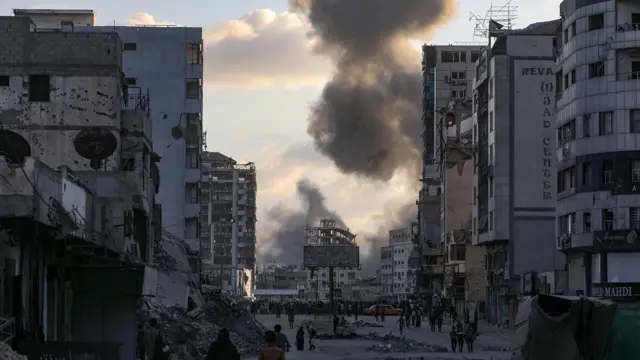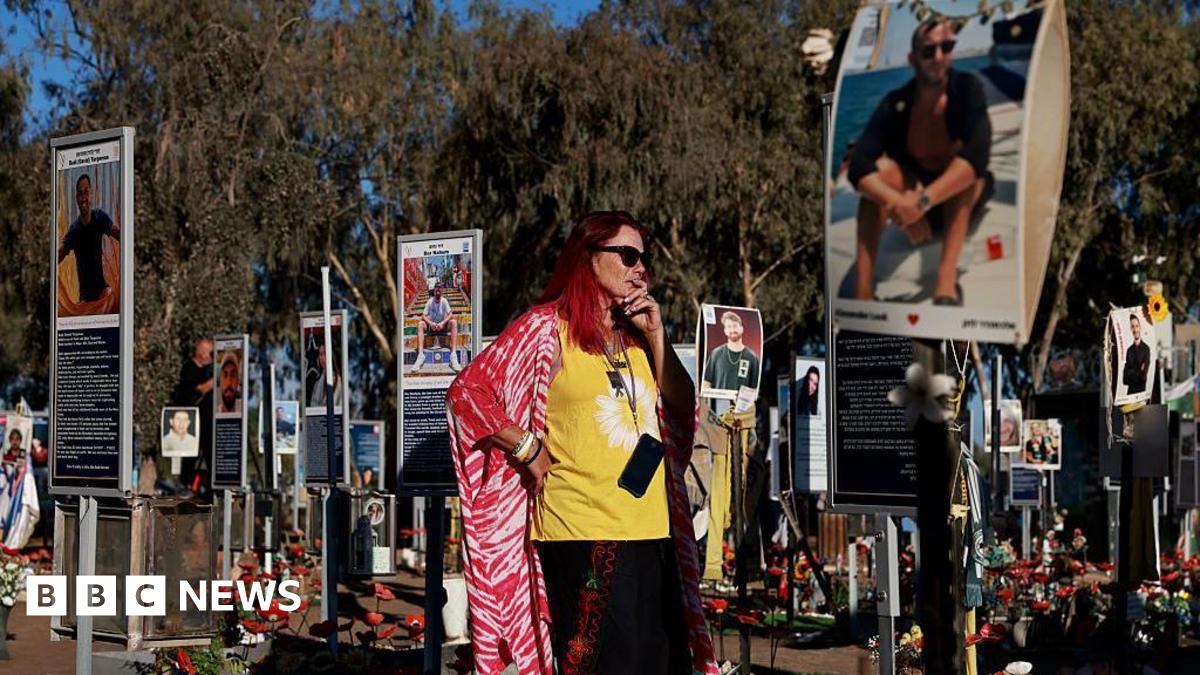06:15 BST
 Image source, EPA
Image source, EPAIt has been two years since Hamas’s attacks on Israel on Saturday 7 October 2023 – the deadliest in its history – in which about 1,200 people were killed and 251 others were taken hostage.
In the aftermath, Israel immediately launched a massive campaign of air strikes on targets in Gaza, followed by a ground invasion, with the aim of destroying Hamas and freeing the hostages.
Twenty-four months on, the military action is still ongoing.
In Gaza, at least 67,160 people have been killed in Israeli attacks, according to the Hamas-run health ministry. Most of its population has been repeatedly displaced, and more than 90% of homes are estimated to be damaged or destroyed.
It has been difficult to build an accurate picture of the extent of the impact of the war in Gaza.
International news outlets rely on local reporters within Gaza, as Israel does not allow foreign media, including BBC News, to send journalists into the territory since the start of the war.
Despite recent efforts towards securing peace, it remains unclear when the conflict might end.
Yesterday, indirect talks between Israel and Hamas began in Egypt aimed at securing a ceasefire in Gaza.
Their delegations – and US, Qatari and Egyptian mediators – are considering Donald Trump’s 20-point peace plan. Israel has agreed to the proposals, while Hamas has accepted it in part.
Elsewhere, the UK Prime Minister is urging students not to join pro-Palestinian protests today, warning of “rising antisemitism on our streets”.
Stay with us for updates on the talks in Sharm El-Sheikh, the situation in Gaza and events in Israel to mark 7 October attacks, alongside analysis from our reporters in London, the Middle East and around the world
